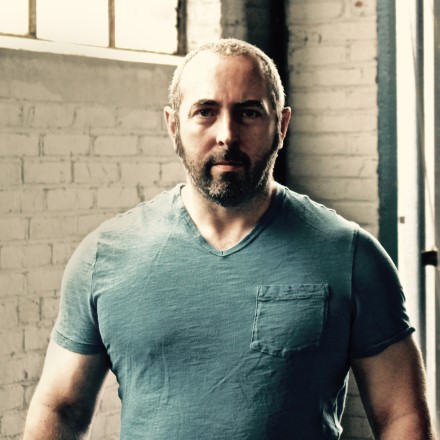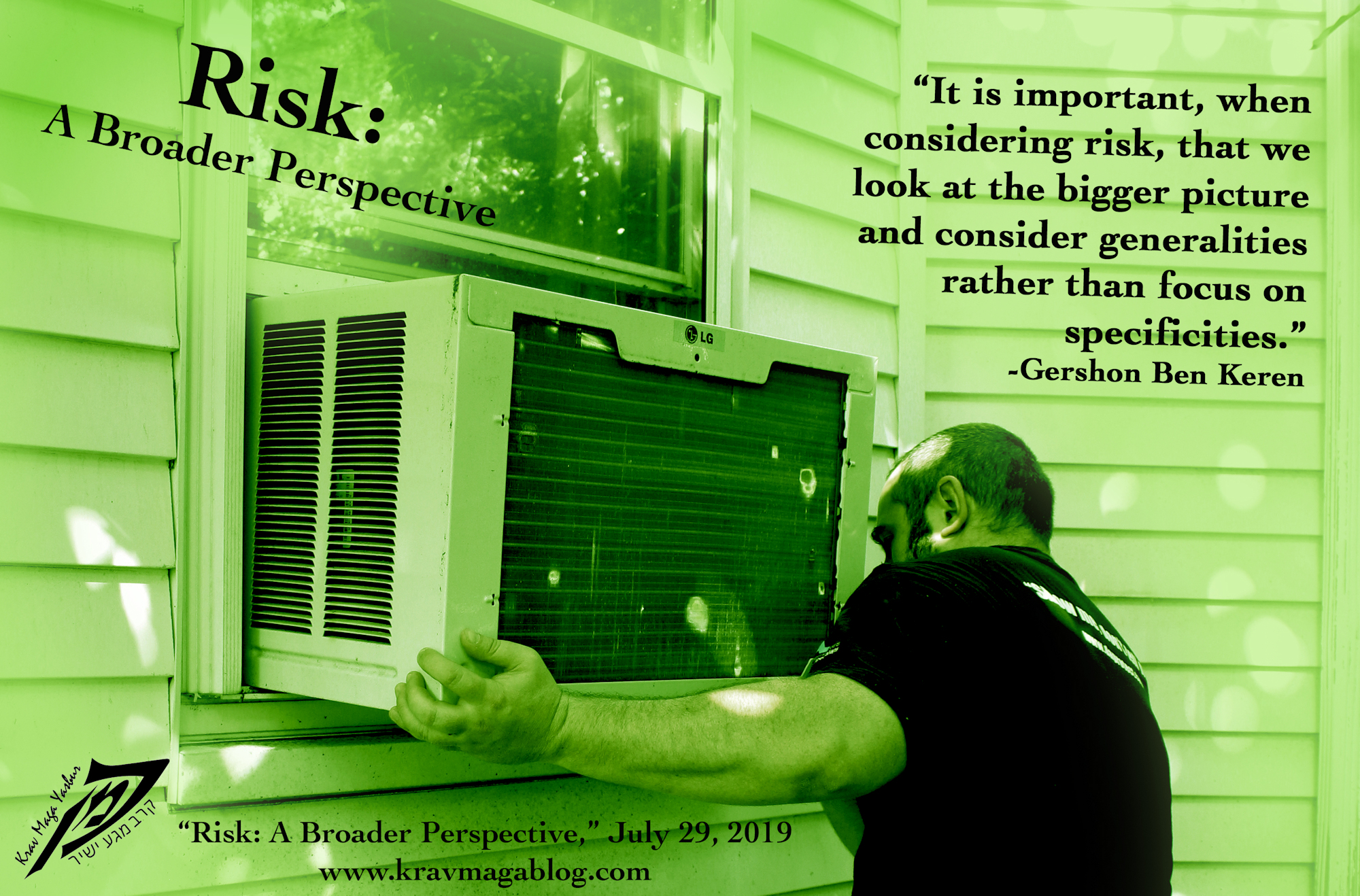We all have blind spots concerning our personal safety, and this often results from compartmentalizing threats, and not recognizing certain vulnerabilities e.g. we put AC locks on our window air-conditioners, so burglars can’t easily push them in to gain access to our properties, but fail to check them – and treat them - for lung-damaging mold, that could constitute a serious health risk, etc. Because we are so focused on certain types of threats, we fail to recognize others. In fact, we may be so pleased with ourselves for thinking to fit an AC lock, and ticking that box, that we no longer think about the safety issues surrounding air conditioners; each year in the US, there are around 7000 fires, attributed to air conditioners malfunctioning – one cause being the build up of lint and dust in the filter, that provides flammable material for an over-heating unit. It’s not that I’m anti air conditioners and air conditioning - I’m big fan, and was one of the few people when I lived in the UK who had air conditioning; I’m rarely ever cool enough, unless it’s winter. The point I’m trying to make is that when we become so focused on dealing with a specific threat such as burglary, we may fail to investigate the potential for other threats, such as mold and fire, and how we can mitigate these risks, by addressing our vulnerabilities – which may be as simple as cleaning the filters, etc. This article looks at how we should consider risk from a 360-degree perspective, rather than just addressing threats head on; something which forces us to literally think outside the box.
Risk is contextual e.g. I’ve worked security jobs where the driver’s airbag was disabled, because if it was necessary to ram a car, the last thing you wanted was for it to deploy, obscuring/preventing the driver from controlling and managing the vehicle, etc. In my car, the airbags are enabled, and maintained, because there is a much greater likelihood of me being involved in a road-traffic accident, than having to ram my way through some form of vehicular obstruction, in my local supermarket parking lot. If you believe that such a scenario may be likely, due to the lifestyle you lead and the people you are involved with, you should change your lifestyle, and your friends/acquaintances. We need to recognize the likelihood of the threats and dangers we face, rather than simply convince ourselves that we should prepare ourselves for the most extreme and dangerous scenarios, that we’re likely to never face, at the expense of those we probably will.
There may be a danger, that we get so caught up with thinking about specific incidents, that we don’t consider the threats and vulnerabilities that are a result of our lifestyle choices. It does little good for us to mitigate the risk(s) of being involved in a violent altercation, only to eat badly, smoke and not exercise, that sets the conditions, and increase our chances of having a heart attack or a stroke, etc. Personal safety, self-protection and self-defense is ultimately about survival, and to be successful in one area but not in another counts for little. I’m not advocating that self-defense classes, should be turned into fitness classes, etc. but rather that increased fitness, increases our chances of survival in the long run (as well as during actual violent encounters). Certain habits that we have may put us at risk for things we don’t necessarily consider. I don’t know any CPOs (Close Protection Operatives) who smoke. If somebody has a nicotine addiction, trying to fit that into another person’s schedule, could put everyone involved at risk. If an operative needs to take breaks, or has their performance – such as their judgment - affected because they are experiencing symptoms of withdrawl, this may mean that they over-react, under-react or don’t react at all, when a response to something is required. If you have a smoking habit, and for whatever reason, haven’t been able to have a cigarette – maybe you’ve run out, or are in a smoke-free zone, etc. – chances are if you are involved in a verbal confrontation, you are going to more on edge than you normally would be. The same can be true, if your lifestyle is extremely stressful, due either to work and/or home life. These are not things that we necessarily think about when considering risk, however we must understand how such factors may make us more vulnerable i.e. our “agitated” state affects the way we respond to threats.
It is important, when considering risk, that we look at the bigger picture and consider generalities rather than focus on specificities. When we look to protect an asset, such as ourselves or something that we own, we should look at all threats which might try and take advantage or exploit it – not just the obvious ones. When considering physical security, we may look at a way that protects our home from burglary, such as making sure there are signs of occupancy, whilst recognizing that such signals are green lights to those planning a home invasion; thus we must design preventative measures that can deal with both – if both are realistic possibilities.
Share:

Gershon Ben Keren
2.8K FollowersGershon Ben Keren, is a criminologist, security consultant and Krav Maga Instructor (5th Degree Black Belt) who completed his instructor training in Israel. He has written three books on Krav Maga and was a 2010 inductee into the Museum of Israeli Martial Arts.
Click here to learn more.

